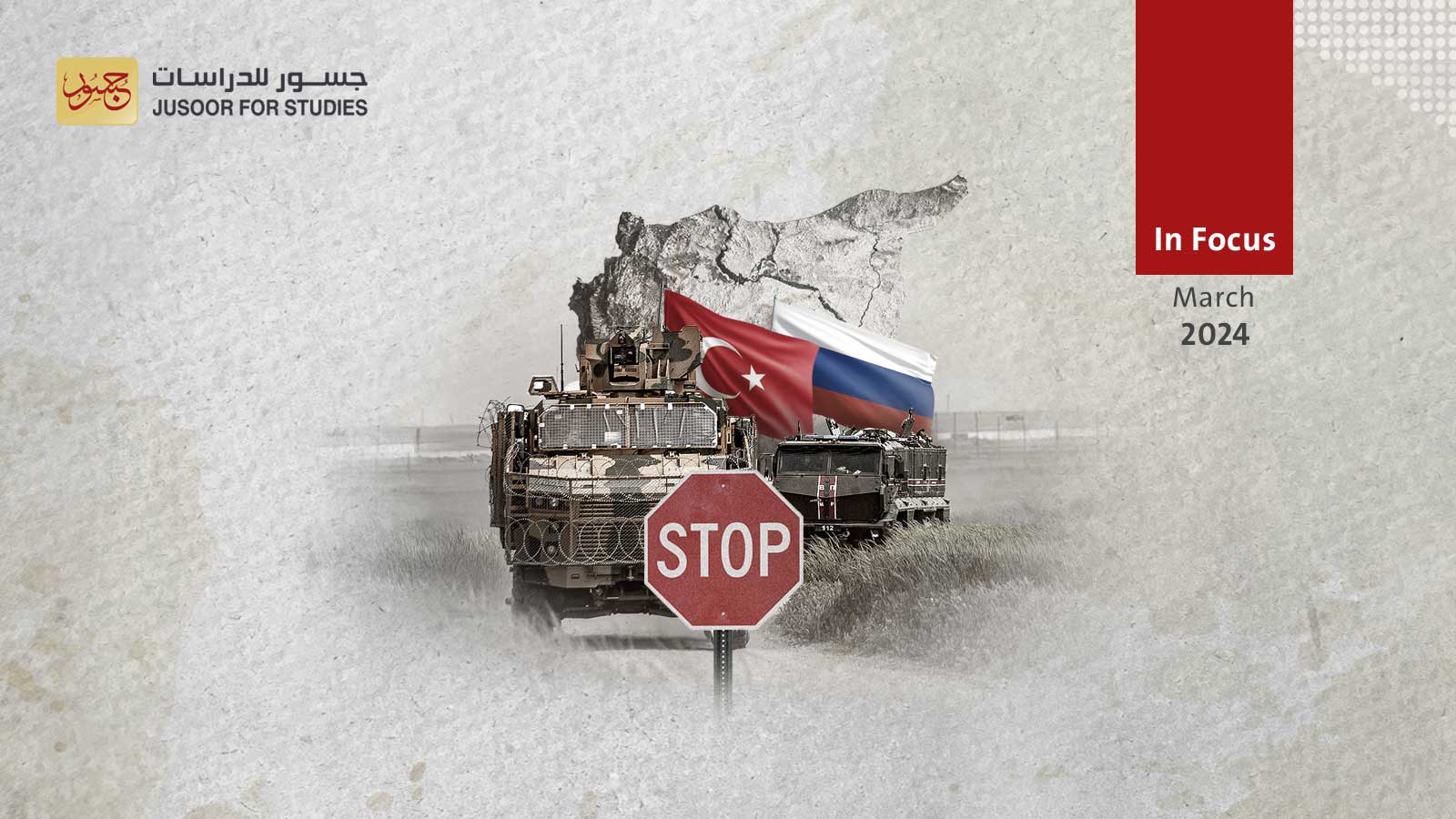Why have joint Turkish-Russian Patrols in NE Syria Been Suspended?
In early March, the Syrian Democratic Forces (SDF) announced that joint Russian-Turkish military patrols in areas it controls had been suspended for 4 months, denying that the two states had conducted such a patrol in the Darbasiyah area north of Hasakah.
Indeed, according to Jusoor’s monitoring, joint patrols have been suspended for more than four months, the last having been conducted in Darbasiyah on August 24 last year, Ain Al-Arab / Kobani on July 17, and in Malikiyah / Derik route as long ago as December 22, 2022.
Joint Russian-Turkish patrols are the main tool used by the two states to monitor the implementation of the 2019 Sochi Memorandum of Understanding, specifically a clause on the withdrawal of Kurdistan Workers’ Party (PKK) personnel from a 30-kilometer-wide buffer zone south of the Syrian-Turkish border. The patrols have been running since October 20, 2019 along five routes, two of them in the Ain Al-Arab northeast of Aleppo, two in the Darbasiyah region and one on the the Malikiyah / Derik axis in Hasakah province.
Over four years, Türkiye and Russia had conducted some 215 patrols : 143 in Ain Al-Arab Area, 64 in Darbasiyah and eight in the Malikiyah / Derik region.
However, the patrols did not achieve their intended goal. The PKK and its affiliates in Syria have kept up their activities and presence in these areas, using several tactics, most notably:
• Keeping their centers of deployment and their operations away from these fixed joint
patrol routes, which are known by all parties.
• Regularly changing the movements of their personnel and leaders to avoid these patrols,
helped by the fact the schedules of the patrols are based on a fixed time table that the SDF obtains through coordination with Russia.
Moreover, the PKK has continued targeting Türkiye along in the border area or in the Turkish interior, launching them from SDF-held areas where joint patrols are conducted.
There are a several possible reasons for the suspension of joint Turkish-Russian patrols in SDF-controlled areas of northern and eastern Syria:
• Türkiye sees joint patrols as pointless given the PKK’s ongoing attacks, including those
launched from the border, such as during operations in Istanbul and Ankara.
• Türkiye has changed how it monitors PKK activities inside SDF-controlled areas, focusing
on surveillance by its own intelligence agency, which has increased its activities of late and has successfully transitioned to carrying out direct assassinations of party cadres in the heart of SDF-held zones, such as the assassination of leading figure Murad H in the middle of Qamishli city on February 12, 2024, or coordinating with local anti-SDF groups in areas the group controls that lie beyond the range of Turkish aviation, especially in Deir Ezzor and the southern Hasakah countryside, such as the assassination of SDF and PKK leader Shirvan Hassan (Roni) on December 5 at the entrance to the base of the international coalition forces in the Omar oil field.
• The suspension of joint patrols may be linked to standard Turkish security precautions such as halting joint patrols during periods of aerial escalation against the PKK and SDF, to avoid retaliatory operations by local affiliates of the latter in the areas where the patrols were taking place. However, the extended suspension of the patrols and the
fact that it did not initially coincide with a Turkish military escalation means that this is unlikely to be the main reason.
In conclusion, joint Turkish-Russian patrols within SDF-controlled areas are likely to be stopped permanently. If they do resume in the future, they will likely be of a different nature and away from the current routes. This may be determined by Türkiye’s success in strengthening its coordination with the United States and Russia to reassess this mechanism and change it to make it more effective.
This could involve expanding the routes to be more flexible and cover as much of the SDF-controlled areas as possible, especially Malikiyah and Qamishli, which are considered the safest areas for the PKK’s deployment and activities, along with other areas of Syria where it operates along with its affiliates.








